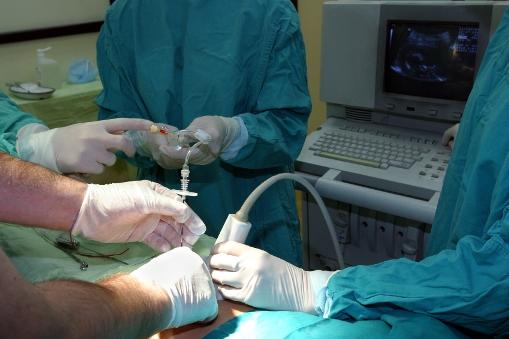Today the number of suspected microcephaly cases in Brazil grew, and yesterday scientists detailed Zika virus findings in the amniotic fluid of two pregnant women, adding more evidence to a possible link between the condition in infants and Zika virus infection.
In other developments, local transmission was confirmed in two more Caribbean territories—the Dutch islands of Aruba and Bonaire—raising the total affected locations in the Americas to 28.
More microcephaly cases
Brazil's health ministry today reported 201 more suspected microcephaly cases, a condition that might be tied to Zika infection in which infants are born with small heads and underdeveloped brains.
The ministry also confirmed 46 earlier cases but ruled out 72 others, putting the number under investigation at 3,935, according to an official statement translated and posted by Avian Flu Diary, an infectious disease news blog.
So far 508 cases have been confirmed and 837 have been ruled out, from a cumulative total of 5,280 suspected cases. Brazil's confirmed microcephaly cases are from 203 cities in 13 of the country's states.
Virus in amniotic fluid
In research developments, Brazilian scientists yesterday published full case findings on Zika virus detection in the amniotic fluid of two pregnant women who had microcephalic fetuses, initially announced by Brazil's health ministry in the middle of November. The team published its findings in an early online edition of The Lancet Infectious Diseases.
Both women had symptoms of Zika virus infection in their first trimester of pregnancy. Ultrasounds at 22 weeks gestation confirmed microcephaly, and researchers obtained amniotic fluid at 28 weeks. Tests confirmed the presence of Zika virus genomes as well as Zika antibodies.
Tests on the women were negative for other infectious diseases, and samples of blood and urine were negative for Zika virus. When researchers compared the Zika virus genome from the amniotic fluid to samples from a previous outbreak, they found that they were genetically related to the strain implicated in French Polynesia's 2013 outbreak.
French Polynesian and Swiss experts writing in a related commentary said the findings strongly suggest but don't prove that Zika virus causes microcephaly and that the next step is to do case-control studies to sift out the risk of microcephaly and other complications stemming from maternal Zika virus infections.
CDC travel restrictions for Aruba, Bonaire
The Pan American Health Organization (PAHO) added the Dutch territories Aruba and Bonaire to its list of locations in the Americas with confirmed local Zika virus spread, bringing the number of affected areas to 28.
Aruba and Bonaire are part of a trio of islands in the Caribbean off the coast of Venezuela, and local spread had recently been confirmed in nearby Curacao.
The confirmations prompted the US Centers for Disease Control and Prevention (CDC) to add the two destinations to its level 2 travel warning, which urges pregnant women or those considering becoming pregnant to consider postponing travel to areas where the virus is circulating.
World Bank pledges $150 million
Also, in a show of support for Caribbean and Latin American countries battling the virus, the World Bank Group today announced $150 million in immediate funding, based on each country's needs. In a statement, the group said it is ready to increase its support if needed.
The World Bank also released initial projection of the economic impact to the area, which it said will be modest, at $3.5 billion for 2016. It said the estimate assumes a swift international response to the threat and that the main health threat will be to pregnant women.
It added that the group of countries that depend on tourism, especially in the Caribbean, could suffer a loss of more than 1% of gross domestic product.
See also:
Feb 18 Avian Flu Diary post
Feb 17 Lancet Infect Dis case study
Feb 17 Lancet Infect Dis commentary
Feb 17 Lancet press release
PAHO list of confirmed Zika transmission areas in the Americas
CDC Zika-related travel advisory
Feb 18 World Bank press release





















